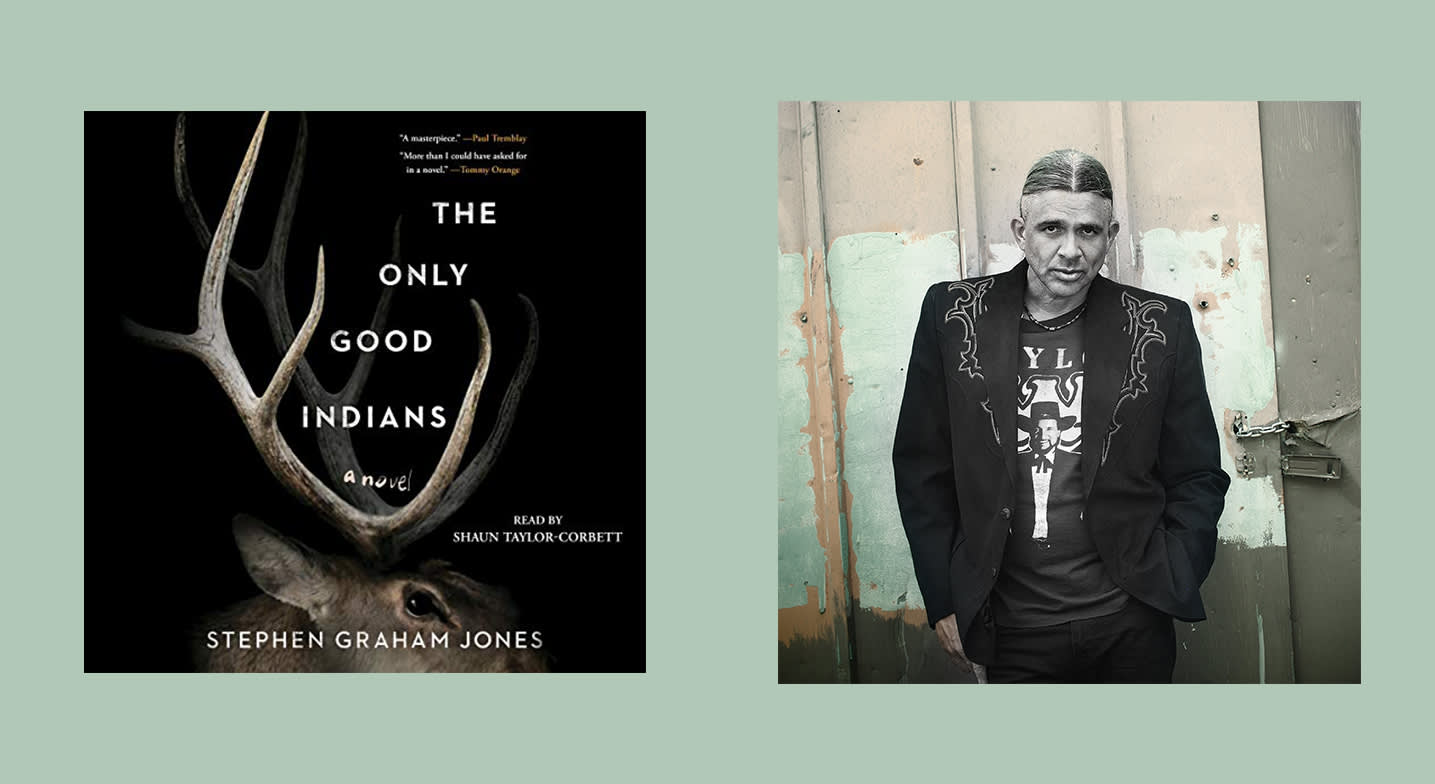“How scary is Sinners?” As a horror fan who saw Ryan Coogler’s vampire blockbuster on opening weekend, I’ve been getting this question a lot lately. Even the highly squeamish have heard the hype by now, and they want in—even if they have to peek through their fingers to see it.
As well they should. Sinners is the most exciting and groundbreaking movie of the year, a blood-soaked epic of blues, Hoodoo, and horror in 1930s Mississippi. Starring Michael B. Jordan as twin brothers who return to their hometown to start a juke joint and find themselves facing off with evil, the film is dense with historical detail, gorgeous cinematography, incredible performances, and a dance scene for the ages. It’s also a major achievement in Black storytelling and cinema at large, exploring themes of racial tension, cultural exploitation, and the transformative power of music, particularly blues, against the backdrop of the Jim Crow South.
With its rich historical setting and supernatural elements, Sinners offers a poignant exploration of Black resilience and artistry. Blending elements of horror, Southern Gothic, and musical drama, the film leaves audiences with a lot to ponder. Maybe you walked out of the movie like I did, wanting to know more about the story of Robert Johnson selling his soul to the devil to become a blues legend. Maybe Sinners made you curious about the Deep South’s complex mix of dark history and deep culture. Or maybe it whet your appetite for more genre-bending stories with racial and social commentary—or vampires.
Our team of Sinners fans—history buffs, horror nuts, and fraidy-cats alike—came up with this list of audiobooks to help answer your pressing Sinners questions and inspire your next listen. As for the question of how scary it is? Well, Sinners is definitely violent, unnerving, thrilling, and bloody. But that shouldn’t stop you from seeing this monumental film, which isn’t as scary as you might think, at least not in the traditional sense. To me, Sinners shows with great care and dazzling clarity something more terrifying than vampires: the Jim Crow South.
For lyrical Black history from a contemporary star:
The blues plays a central role in Sinners, and like the movie, this book takes an expansive, imaginative approach to its subject. In Black in Blues, acclaimed scholar Imani Perry contemplates Black history and culture via various shades of the color blue, from West African indigo cloths bartered in the slave trade to the quintessentially American art form of blues music. For a provocative history of the South, don't miss Perry’s National Book Award-winning South to America.
For a smart and passionate history of the blues:
Renowned music historian Ted Gioia pens the definitive account of how the blues—which grew out of the plantations, prisons, swampy marshes, and fertile cotton fields of the Mississippi Delta—changed the course of American popular music. With original research and keen insights, Delta Blues evokes the legendary figures who shaped the Delta’s sound and ethos, from Robert Johnson, Charley Patton, and Muddy Waters to John Lee Hooker, Howlin’ Wolf, and B. B. King.
For an education in Black horror:
From visionary writer and director Jordan Peele (Get Out, Nope) comes this groundbreaking anthology of all-new stories of Black horror, exploring not only the terrors of the supernatural but the chilling reality of injustice that haunts our nation. Read by the author and a full cast, the collection includes stories from Maurice Broaddus, P. Djèlí Clark, Tananarive Due, Nalo Hopkinson, N. K. Jemisin, Nnedi Okorafor, and more.
And a schooling on Hoodoo:
Sociology scholar Katrina Hazzard-Donald explores the herbal, healing folk belief tradition known as Hoodoo in Mojo Workin': The Old African American Hoodoo System, which situates the practice against a changing America. Hazzard-Donald distinguishes between “old tradition Black Belt Hoodoo” and commercially marketed forms influenced and manufactured by outsiders, focusing on the system operating among African Americans in the Black spiritual underground.
The monstrosity of Jim Crow:
The century between the abolition of slavery and the civil rights revolution poses a question: If emancipation meant freedom, why was it necessary to march? Henry Louis Gates, Jr. seeks to answer via a history that moves from Reconstruction through to the Harlem Renaissance, including the “nadir” of the African American experience under Jim Crow. Stony the Road reveals the many faces of Jim Crow and how they reinforced a stark color line between white and Black Americans.
On “passing”:
In Sinners, Hailee Steinfeld plays Mary, a white-passing woman whose mother was terrorized for being the child of mixed-race parents. Mary’s sense of disconnection and lack of community are markers of “passing,” a concept explored in Nella Larson’s classic novel about a light-skinned Black woman whose old childhood friend is now passing as white. The novel is performed by Tessa Thompson, who starred in the 2021 film adaptation.
The vampirism of cultural appropriation:
At times, Sinners feels like a zombie movie, with the good guys barricading themselves against a horde of violent maniacs. Yet vampires are a perfect symbol of cultural appropriation, which sees white people feeding off the creativity and achievements of Black people for mainstream success, famously with the blues. In White Negroes, Lauren Michele Jackson reveals how this toxic dynamic persists across the culture, exacerbating economic, political, and social inequity in America.
If you couldn’t get enough of that dance scene:
Sinners’s biggest moment is a transcendent celebration in which Sammie’s blues performance connects past and present, with the crowd suddenly including partygoers from all different eras and scenes, from hip-hop to rock to tribal music. If you’ve ever been to a P-Funk concert, you know the vibe. Revolutionary funk icon George Clinton exemplifies the Afrofuturist tradition of using sci-fi to reimagine Black experiences. For another music memoir, folk icon Rhiannon Giddens—who collaborated on music for the film—narrates her powerful 2021 release To Balance on Bridges.
For a historical vampire tale:
In this chilling historical horror novel set in the American West in 1912, legendary horror author Stephen Graham Jones portrays a vampire who haunts the fields of the Blackfeet reservation looking for justice. Told via a pastor’s diary, which transcribes interviews with a Blackfeet named Good Stab, this American Indian revenge story unveils a slow massacre—a chain of events that goes back to 217 Blackfeet dead in the snow.
For a feminist vampire tale:
The success of Sinners boosts the timeliness of Kat Dunn’s buzzy Hungerstone, a feminist reworking of Carmilla, the queer novella that inspired Dracula. Reimagining vampires from the female gaze, Dunn subverts our expectations of the monster as a male predator. Instead, when unhappy wife Lenore meets mysterious Carmilla, their connection stirs up a terrible hunger that’s about much more than simple bloodlust.
For a supernatural novel that’s not so scary:
Rickey Fayne’s haunting debut grips you from the beginning with its Southern Gothic atmosphere and taut emotional core. Fayne explores the idea that sometimes the devil we face is not a single event or person but the echo of mistakes made—and remade—across generations. What makes this novel exceptional is its intimacy, both poetic and raw. His characters are heartbreakingly real, and their search for meaning feels urgent and true.
For an action-packed Southern noir:
If you loved the dazzling aesthetics and no-holds-barred action of Sinners, wait till you hear S.A. Cosby. His violent, compulsive thrillers are laced with knockout prose, big characters, and themes of race, history, and trauma. His upcoming King of Ashes is a Godfather-inspired epic centered on a trio of siblings whose father ran a Virginia crematorium before a mysterious car accident put him in a coma. With Cosby’s longtime collaborator Adam Lazarre-White on the mic, King of Ashes is destined for greatness.
For more ancient spirits wreaking havoc:
The beings in this terrifyingly immersive multicast thriller are not the “haints” of Sinners but the Mbirwi, a vengeful entity born from centuries of colonial oppression. Starring Caleb McLaughlin of Stranger Things as a headphones-wearing, self-absorbed teen, Sacrilege: Curse of the Mbirwi follows his family's vacation to a luxury game reserve in Zimbabwe where ancient spirits collide with inner wounds, and family secrets are as deadly as the strange beasts that stalk the savanna.
More horror novels on race in America:





















